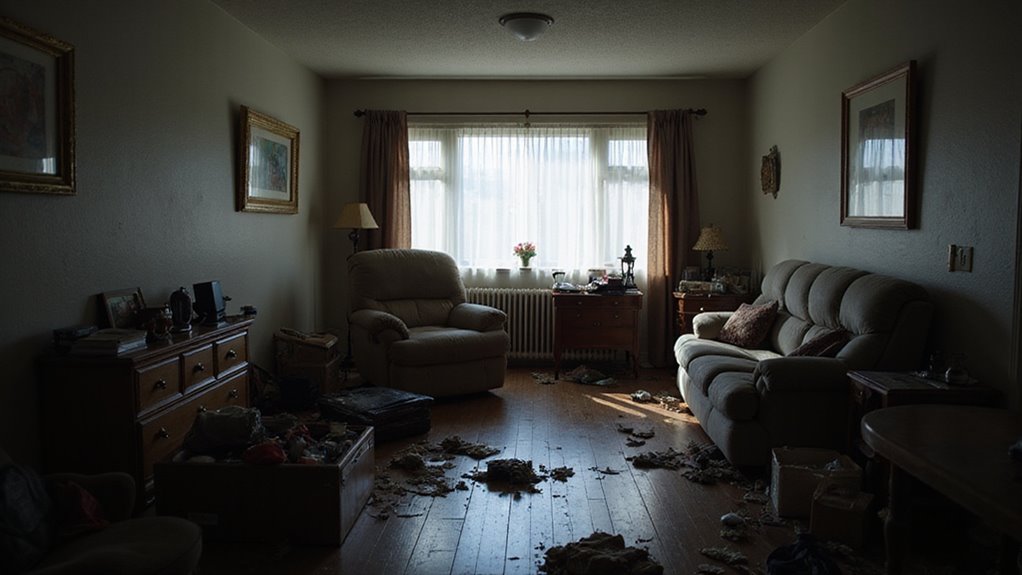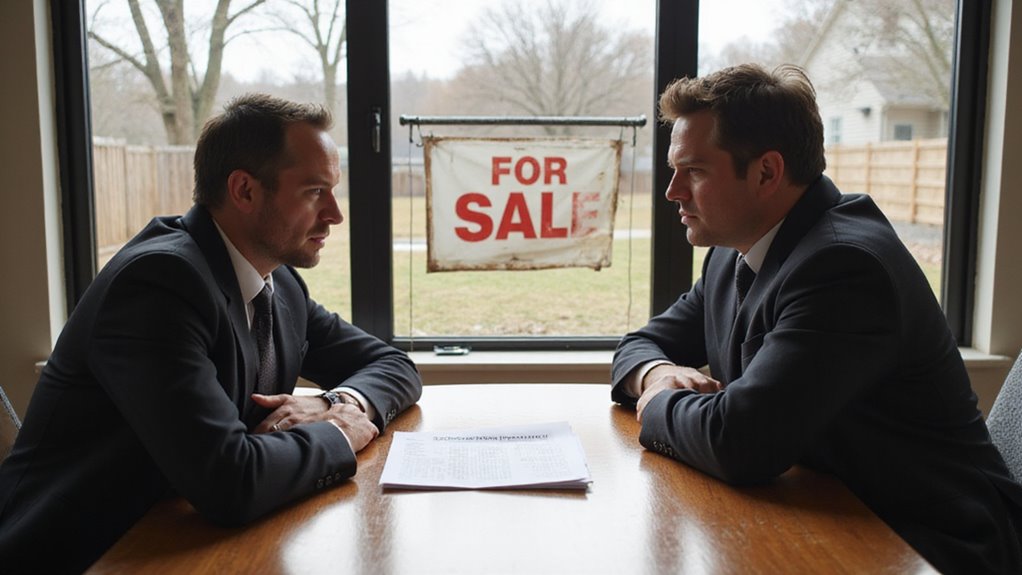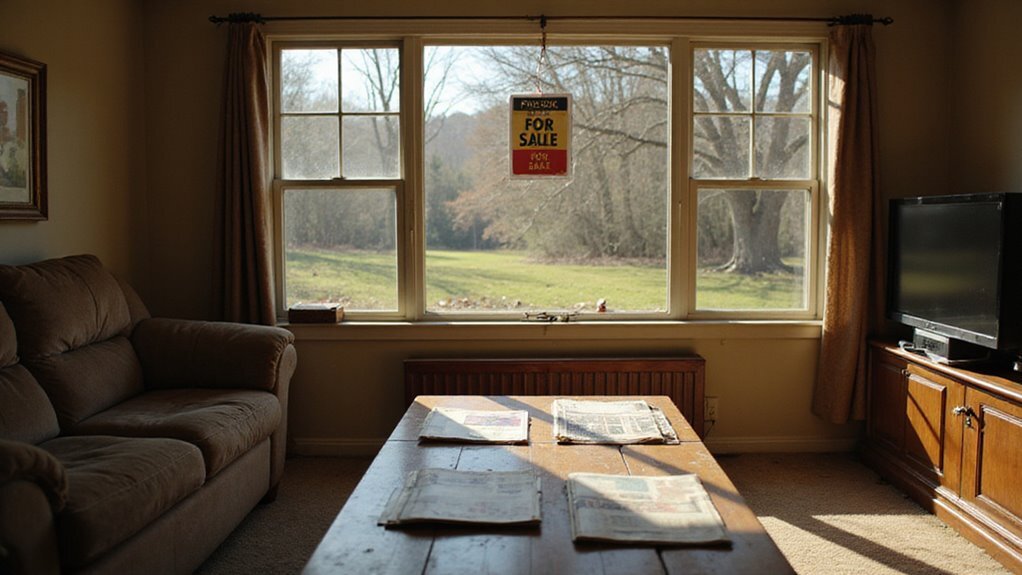Have you seen homes stay on the market for months, even when buyers seem eager everywhere else? Expired listings are a real problem for many sellers. They can waste time and money while causing stress and disappointment.
An unsold home can make owners question their choices and lose confidence in their agent. Buyers may wonder if something is wrong with the property. This uncertainty can keep offers away and stall the entire selling process.
Home listings expire without selling because of wrong pricing, weak marketing, or skipped maintenance. You can avoid these traps with smart planning and honest advice. The right approach will boost your chances of a fast sale. This blog will show you how to fix these problems and get your home sold.
Key Takeaways
- Overpricing the property discourages buyers, causing the listing to linger and eventually expire.
- Poor home presentation, clutter, or visible maintenance issues reduce buyer interest and perceived value.
- Ineffective marketing or low-quality listing photos limit property exposure and attract fewer potential buyers.
- Limited showing availability restricts buyer access, decreasing the likelihood of receiving offers.
- High competition from similar properties or unfavorable location concerns make it harder for a listing to stand out and sell.
Overpricing the Property

Overpricing your property often leads to it not selling. If you set the price too high, buyers may lose interest. Homes that are overpriced usually stay on the market longer.
Buyers can easily compare prices online. They will notice if your home costs more than similar properties. If this happens, many buyers will not even view your home. Homes that are overpriced rarely sell or take a long time to find a buyer.
You should use recent sales data to set your price. If you rely on emotions or old appraisals, you risk asking too much. Accurate pricing helps attract more buyers and increases your chances of selling.
When housing inventory is low, pricing your home correctly becomes even more important to attract serious buyers and achieve a quick sale.
Ineffective Marketing Strategies
Ineffective marketing strategies make it hard to sell your home. Poor marketing can cause your listing to sit unsold and eventually expire. If you do not advertise well, fewer buyers will see your property.
Most buyers use the internet to find homes. Sellers who skip digital marketing reach a much smaller audience. Not using social media or real estate websites means missing many potential buyers.
Skipping digital marketing limits your home’s exposure—most buyers search online, so missing out means fewer people see your listing.
Old-fashioned open house tactics do not create excitement or urgency. If you rarely hold open houses or fail to promote them, buyers may lose interest. Sellers should use updated methods to attract attention and create demand.
A good digital marketing plan can help sell your home faster. If you combine online ads with modern open house events, you increase your chances of a sale. This approach gets your home in front of more buyers.
Including information about marketable title in your listing can also boost buyer confidence and help your property stand out in a competitive market.
Poor Quality Listing Photos

If your listing photos suffer from low lighting or unflattering angles, you’re losing buyers before they even step inside. Data shows that homes with bright, well-composed images sell 32% faster. Upgrade your photos with proper lighting and professional angles to instantly boost your property’s appeal.
In some cases, listings with poor photos may further discourage buyers if the property appears neglected, which can amplify concerns about decreased property value and make it harder to attract offers. Additionally, the local real estate trends in your area can magnify the impact of listing photo quality, especially in markets where buyer competition is already intense.
Low Lighting Issues
Poor lighting in photos can make your home less appealing to buyers. If your listing photos are dark, buyers may lose interest quickly. Good lighting helps your home look larger and more inviting.
Natural light is very important for clear photos. You should open all curtains and blinds before taking pictures. If possible, take photos during the brightest time of the day.
Old or dim bulbs can make rooms look dull. Replace them with bright, daylight-style bulbs for better results. Use extra lamps to brighten dark corners if needed.
If you improve the lighting, your listing is more likely to attract buyers. Bright photos stand out and keep your home from being overlooked online. Good lighting can help your home sell faster.
Unflattering Angles Used
Unflattering angles in photos can make your home look small and less appealing. Buyers may worry about the layout or condition if photos look odd. Poor angles can highlight clutter or unattractive areas.
Most buyers decide to visit a home based on photos. The National Association of Realtors says 97% of buyers look at online pictures first. Bad photos can reduce the number of showings by up to 40%.
If you want to attract buyers, use professional photos with good angles. A professional photographer knows how to show your home’s best features. This can help your home appear bright, spacious, and inviting.
Limited Showing Availability
Limited showing availability makes it harder to sell your home. Buyers want to view homes when it fits their schedules. If showings are limited, your home may get fewer offers. If buyers can’t see your home when they want, limited showings may mean fewer offers and a slower sale.
Flexible showings help your home sell faster. The National Association of Realtors says homes with more access sell 30% quicker. More showings mean more buyers see your home. Your chances also improve when you pay attention to curb appeal, since first impressions matter as much as flexible scheduling.
If buyers can only visit after work, restricted hours may stop them. Weekend slots often fill up fast if your agent is busy. Declining last-minute showings may cause buyers to lose interest.
Streamlining the scheduling process can help. If your agent is responsive, more buyers can view your home. Flexible access increases your chances of selling. In situations like selling inherited property, limited showing times can delay the process further, especially if multiple heirs must coordinate access.
Unaddressed Maintenance Issues

Unaddressed maintenance issues can drive buyers away, even if you have many showings. If you skip repairs or inspections, buyers may think the home is not well-maintained. The 2023 National Association of Realtors found that 34% of expired listings had visible maintenance problems.
Visible issues like leaky faucets or damaged roofs can make buyers worry about bigger problems. Outdated electrical work could raise safety or insurance concerns. If buyers see these issues, they might offer less or walk away. Working with a reputable local realtor can help you identify and address these maintenance issues before listing.
Sellers should fix all known problems before listing the home. Taking care of repairs after inspections can help build buyer trust. If you want a quick sale, provide a move-in ready property. Additionally, it’s wise to conduct a thorough property lien search before listing, as undisclosed liens can also deter buyers and complicate the selling process.
Unappealing Home Staging
If your home feels cluttered or has poorly arranged furniture, you’re likely turning away serious buyers—over 80% say staging impacts their perception of a property. Clutter makes rooms appear smaller and distracts from your home’s features, while awkward furniture placement disrupts flow and appeal. To boost your chances of selling, clear out excess items and arrange furnishings to highlight space and functionality.
Taking additional steps like professional staging can make your home more attractive and even lead to a higher selling price. Before listing, it’s also smart to gather and organize property documents to ensure a smooth transaction and help buyers feel confident about your home.
Clutter Deters Buyer Interest
Clutter reduces buyer interest right away. Buyers often turn away from homes that look crowded or messy. If a home is tidy, buyers are more likely to consider it seriously.
Clutter makes rooms look smaller and can cover up a home’s best features. Buyers may also think the home is not well cared for. If you want to attract buyers, remove clutter before showing your home.
Buyers notice full shelves, stacked boxes, and packed closets. Personal items left out can distract them. A clean, open space helps buyers picture themselves living in your home.
Poor Furniture Placement
Bad furniture placement can make a home feel crowded or awkward. Buyers may feel uncomfortable and lose interest quickly. They might think the space is smaller or less useful than it really is.
If buyers cannot walk through rooms easily, they may look elsewhere. Furniture that blocks pathways or hides features creates a poor first impression. Even the best home features can go unnoticed if the room flow is bad.
Arrange furniture to keep walkways open and highlight key features. Place important pieces so they draw attention to things like fireplaces or large windows. Good furniture placement helps buyers imagine living in the home.
Inflexible Negotiation Stance

An inflexible negotiation stance can make it hard to sell your home. Buyers expect some give and take on price and terms. If you are too rigid, your listing is more likely to expire.
Sellers who reject counteroffers, even if they are close to the asking price, may lose serious buyers. Refusing to handle small repairs can also drive buyers away. Ignoring local market data can make your home seem overpriced. Reviewing recent sales of comparable homes in your area can help you understand what buyers are actually willing to pay and allow you to set more realistic expectations.
Insisting on strict closing dates may not work for buyers who need more time. Flexibility can help you reach an agreement and close the sale. If you adapt your approach, you increase your chances of selling.
Being open to competitive pricing techniques can help position your property more attractively in the market and reduce the risk of your listing expiring.
Choosing the Wrong Real Estate Agent
If you choose the wrong real estate agent, your listing may suffer from limited marketing exposure, poor communication, and inaccurate pricing—three key reasons homes fail to sell. Data shows properties priced incorrectly are up to 60% more likely to expire unsold. To avoid this, work with an agent who uses comprehensive marketing, maintains clear communication, and backs pricing with solid market analysis.
Additionally, if you consider selling to a cash house purchasing company, it’s crucial to check the company’s reputation to ensure you are dealing with a legitimate buyer and not risking your sale with an unreliable organization. Some expired listings also stem from undisclosed title issues that weren’t addressed up front, making it essential to review your title report thoroughly and disclose any problems to potential buyers.
Limited Marketing Strategies Used
A limited marketing strategy means your home gets less attention from buyers. This can happen if you choose the wrong real estate agent. If fewer buyers see your home, you may miss good offers.
Many agents do not use digital tools or social media. The National Association of Realtors says 97% of buyers search online. If your listing is not easy to find online, it may get ignored.
You might see poor photos, few ads, or no posts about your home. Some agents do not list homes on popular websites or apps. These mistakes reduce your home’s visibility.
If you want more buyers to see your home, ask for a better marketing plan. A strong plan should include good photos, online ads, and social media posts. With a modern approach, you have a better chance of selling quickly and at a good price.
Poor Communication With Sellers
Poor communication with your real estate agent can keep your home from selling. If your agent does not update you often, you may miss important information. Good updates help you make better choices and sell your home faster.
Sellers who get clear updates know what is happening with showings and buyer feedback. If your agent does not share these details, you may lose serious buyers. Missed updates can also cause delays in your sale.
If you want to avoid these problems, choose an agent who values open communication. Set clear rules for regular check-ins and reports. Staying informed helps you act quickly and keeps your listing strong.
Inaccurate Property Pricing
Inaccurate property pricing can stop your home from selling. If your house is not priced correctly, buyers may lose interest. A good agent uses data and market knowledge to set the right price.
Some agents do not study local sales before setting a price. If your home is listed higher than similar ones, it may stay on the market longer. Automated price tools can miss important details about your property.
If your agent ignores feedback from showings, the price may not be adjusted when needed. The National Association of Realtors says that homes priced right sell faster and closer to the asking price. Always ask your agent to explain their pricing strategy with recent sales and market trends.
Timing and Market Seasonality
Timing and market seasonality affect how quickly a home sells. The best time to list is when buyer activity is high. Sellers should plan carefully to get the most attention.
Spring and early summer usually have more buyers. Many families want to move before a new school year begins. More buyers often lead to more offers.
Listings in late fall or winter often get less interest. Fewer buyers may mean your home stays on the market longer. You could risk your listing expiring if demand is low.
You should always check local trends before listing. If you align your sale with busy times, you can attract more qualified buyers. This increases your chances of a successful sale.
Inaccurate or Incomplete Listing Information

Accurate and complete listing information is crucial for attracting buyers. If a listing has errors or missing details, buyers may ignore it. Most buyers rely on online listings when deciding which homes to view.
Missing details can include square footage, room counts, or key features. Listings without good photos or updated descriptions often get skipped. Buyers also want to see correct pricing and honest disclosures.
If the listing is incomplete, buyers may think something is wrong with the property. Sellers should review their listings for mistakes or outdated content. Being clear and honest helps buyers trust the information and increases the chance of offers.
Negative Location Perceptions
Some homes stay unsold because buyers worry about the location. Neighborhood reputation and local services matter a lot to buyers. If buyers think the area is bad, they may not consider the home, even if it looks great.
A 2023 NAR survey found that 62% of buyers care about neighborhood reputation. Issues like crime, poor schools, or lack of parks can lower buyer interest. Good features inside the home may not be enough to change their minds.
If you face these worries, focus on the area’s good points. You could mention nearby shops, parks, or community events in your listing. If you address concerns honestly and highlight strengths, buyers may feel more positive about your home.
Competition From Similar Properties
Your home may not stand out if several similar properties are for sale nearby. Buyers often choose from many listings with similar features. This makes it harder for your home to get noticed.
If the market is saturated, homes often stay listed longer. Sellers may reduce prices more often to attract buyers. Buyers have more power to negotiate in these situations.
If competing homes offer upgrades or incentives, your home may seem less appealing. Stale listings in your area can make yours blend in. You should study similar listings and adjust your strategy to stay competitive.
If you want to attract buyers, highlight unique features in your home. Consider making updates or offering incentives. A strong strategy can help your home avoid expiring on the market.
Restrictive Financing Options
Restrictive financing options limit the number of buyers for your home. Fewer loan choices mean fewer people can qualify to buy. Many buyers are excluded if they cannot meet strict requirements.
Buyers with low credit or small down payments may not qualify. Some buyers need options like FHA, VA, or seller financing. If your home does not allow these, you miss a large group of buyers.
Here is how limited financing affects buyers:
| Barrier | Impact on Buyers |
|---|---|
| High down payment | Fewer qualified buyers |
| Strict credit criteria | Excludes those rebuilding credit |
| Limited loan types | Reduces flexibility |
| No alternative financing | Misses creative solutions |
If you want to reach more buyers, consider offering more financing options. You should talk to your agent for advice. Expanding financing can help prevent your listing from expiring.
Lack of Curb Appeal
Lack of curb appeal can turn away buyers before they step inside. Buyers often judge a home by its exterior appearance first. A home with poor curb appeal may not sell, even if the interior is updated.
Landscaping and exterior maintenance are important. The National Association of Realtors says 94% of agents recommend these improvements. Simple updates can make your home look more valuable and inviting. Landscaping and exterior updates are key—94% of agents recommend them to boost your home’s value and curb appeal.
If lawns are overgrown or bushes are untrimmed, your home might look neglected. Faded paint or a worn front door can suggest the home needs repairs. Cluttered walkways and old lighting can create a bad first impression.
Addressing these problems can help your home seem move-in ready. If buyers see a well-kept exterior, they are more likely to be interested. Keeping up with these details can prevent your listing from expiring unsold.
Conclusion
If your home listing expires, it often comes down to price, marketing, and presentation. If sellers address these issues, they can improve their chances of a sale. Homes that are priced right and marketed well usually attract more buyers.
If you need to sell quickly, selling to a cash buyer can be a good option. We buy houses for cash in any condition and can close on your timeline. If you want to avoid the hassles of showings or repairs, this could be the best solution.
If you are ready to move forward, we are here to help. At Greg Buys Houses, we make the selling process fast and easy. Contact us today to get a fair cash offer for your home.

